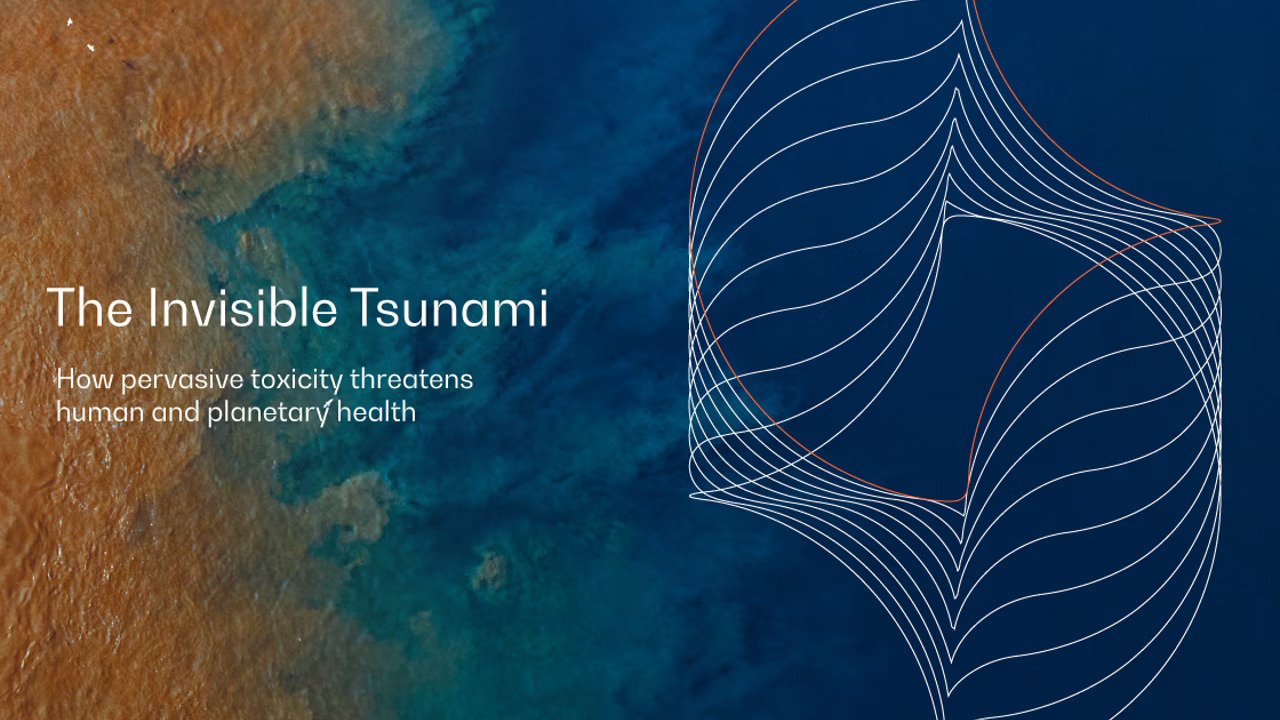This week sees the launch of a report from Deep Science Ventures and the Grantham Foundation for the Protection of the Environment, which reveals that the extent of toxic chemical exposure in air, food, and water is higher than previously recognised.
"The Invisible Tsunami" report emphasises that our current approach to managing synthetic chemicals is inadequate. It reveals that over 3,600 synthetic chemicals from food contact materials alone are routinely present in human bodies.
The report recommends a two-fold shift in the way we approach synthetic chemicals.
Firstly, to modernise chemical regulation to reflect the needs of the 21st century. Regulators predominantly use toxicology data from partial studies, often missing serious health effects stemming from hormone disruption, which can occur at surprisingly low doses.
Secondly, there is a need to close the loopholes and exceptions which leave the public exposed to chemicals which are either known to cause harm or for which there is insufficient public hazard data.
Last but not least, to accelerate innovation by developing, funding, and scaling deep technology solutions for safer chemical alternatives across pesticide and food contact materials.
Literature review reveals chemicals behind UK’s declining health and biodiversity
Amidst the UK's escalating cancer rates, declining fertility, and a surge in chronic diseases, Deep Science Ventures' team of scientists conducted an extensive analysis of peer-reviewed literature.
The resulting report outlines causal and correlational links between toxicity and a variety of severe human health conditions, including cancer, obesity, Alzheimer’s, pregnancy complications, ADHD, fertility issues, heart conditions, and respiratory ailments.
Beyond human health, these chemicals are causing noticeable and widespread damage across ecological systems, affecting biodiversity and the delicate balance of natural environments.
Crucially, the report highlights critical shortcomings in current toxicity assessment, research and testing methods, exposing ways in which existing checks and balances are failing to protect human and planetary health at a bigger scale than what’s been reported so far.
The industrial economy has introduced over 100 million new chemicals; of these, 350,000 are currently in commercial use, and their production has skyrocketed fifty-fold since the 1950s.
The $200M Venture engine powering deeptech innovation
Deep Science Ventures is a venture creator building deeptech companies in four sectors: agriculture, climate, computation and Pharmaceuticals. For just under a decade, DSV has pioneered venture creation through funded partnerships with organisations like Coca-Cola, AbbVie, Anglo American, Agency of Advanced Research and Invention - ARIA (the UK's ARPA), and Cancer Research UK.
Its agriculture vertical aims to create resilient and regenerative food systems by engineering soil ecosystems, plant resilience, and biomaterial production. In climate and energy, DSV targets high-impact decarbonisation by developing scalable solutions for electrifying industry, extracting resources with minimal impact, and creating carbon-negative materials. The computational technologies vertical explores how AI and automation can reduce waste, enhance environmental interfaces, and accelerate scientific discovery. In pharma, it focuses on building curative treatments using gene therapy, synthetic biology, and predictive drug discovery platforms.
Across all sectors, DSV takes a first-principles, venture creation approach—building companies from the ground up to address systemic failures in science and technology.
The DSV’s portfolio, worth over half a billion dollars, has raised more than $200 million from investors including Breakthrough Energy Ventures, Lowercarbon Capital, Sequoia’s scout fund, Sam Altman, and Patrick Collison. DSV is a global team of scientists and exited founders based in London, Tokyo, and Boston, with backgrounds from Bell Labs, Imperial College, and Intel.
Examples of portfolio companies include:
Nanoweave converts wet agricultural residue into textile-grade nanocellulose using on-site plasma tech.
Lilliput Technologies has developed a nanomaterial spray that filters harmful light to boost crop heat-resilience and yields by over 30 per cent.
Thunderstone is developing a novel electrochemical process to extract critical metals like nickel directly from ore without mining, dramatically reducing environmental impact and cost.
Mission Zero Technologies develops direct air capture (DAC) technology that removes carbon dioxide from the atmosphere using an energy-efficient, modular electrochemical process.
"This research, collating peer-reviewed work, shows that humanity is facing a widely underappreciated exposure to chemicals through food, air and water," said Dr Adam Tomassi-Russell, Director of Climate, Deep Science Ventures.
"The scale of the problem appears widespread and research shows the need for a fundamental shift in how we approach our understanding, funding and innovation efforts to solve this problem.”
Jeremy Grantham, co-founder and Chairman, The Grantham Foundation for the Protection of the Environment, stated:
"Toxicity is the most underrated threat facing humanity. DSV have done a remarkable job pulling together the evidence and brainstorming ways to tackle the problem. I hope this report makes a big splash!"
The Grantham Foundation for the Protection of the Environment is a private foundation established in 1997 by Jeremy and Hannelore Grantham. Dedicated to protecting and conserving the natural environment, particularly in addressing climate change, the Foundation is governed by five trustees who are members of the Grantham family.



Would you like to write the first comment?
Login to post comments